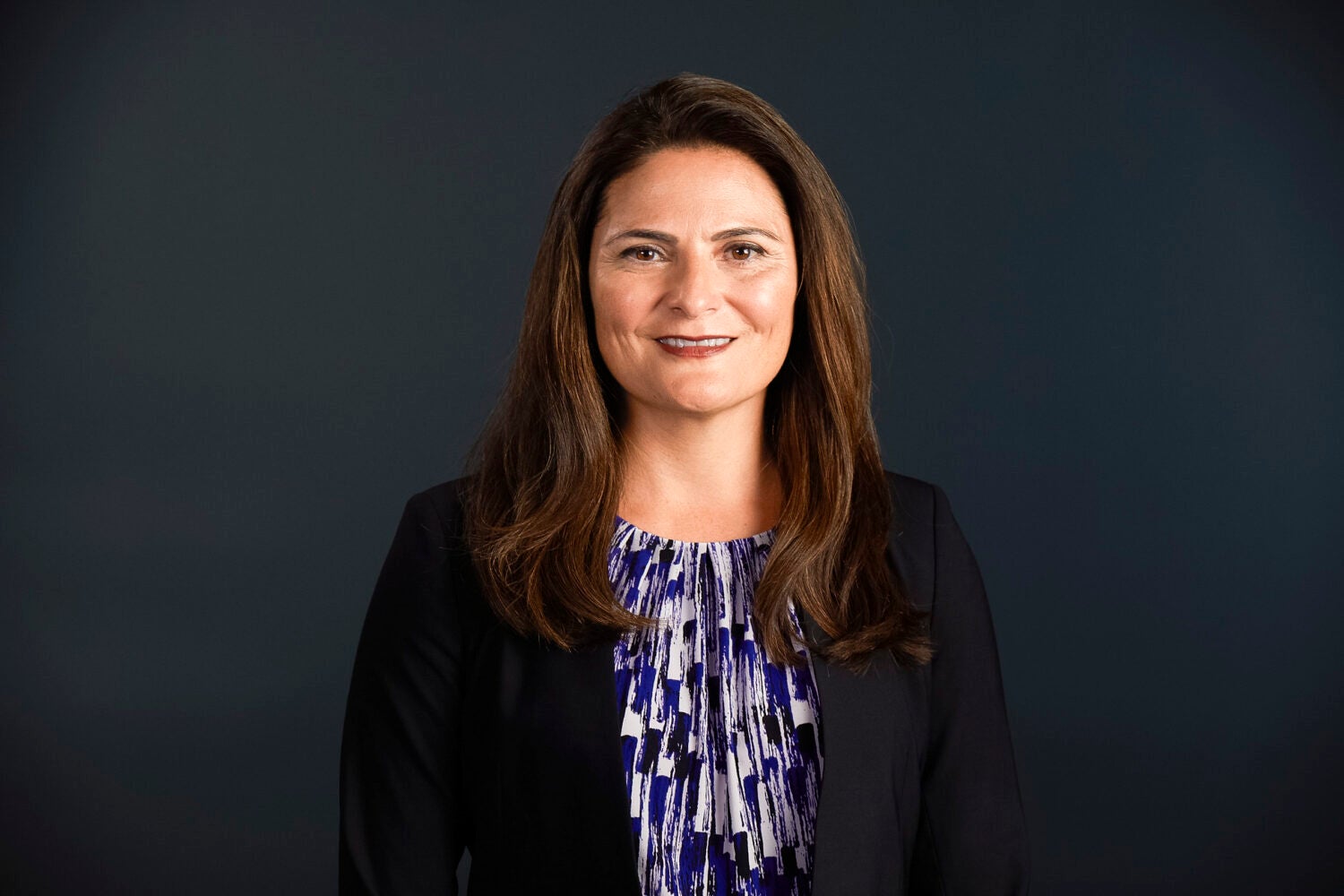Growing up in Los Angeles, Tammy Albarrán ’99 didn’t know any lawyers. The third of four children born to Mexican immigrants, she learned about the profession from“L.A. Law.” Here were people whose job it was to do all the things she wanted to do: help others, problem solve, and make a difference.
A first-generation college student, Albarrán majored in political science and Spanish language and literature at UC Berkeley. At that point she did meet some real, live lawyers — but many of them discouraged her from pursuing law, citing the high stress levels and long hours. “My sense is that they probably never found an area of law they were passionate about,” she guesses. “It helped me understand the importance of focusing on something I found intellectually engaging and meaningful.”
Albarrán has succeeded in doing just that through an approach driven by curiosity and possibility. Shortly after beginning her career, the 2000 dot-com bust led to a significant downturn in the corporate work she’d been doing at the San Francisco-based firm Morrison & Foerster. “I couldn’t just sit at my desk and surf the web,” she says, “so I proactively sought work in the departments that were busy.” With many young, unprofitable public tech companies losing access to capital and shareholder lawsuits on the rise, Albarrán found plenty to do on the securities litigation team. From there she moved into SEC investigations. “Over time, I’ve just pursued areas that were interesting to me and said ‘yes’ to new opportunities,” she says.
“Over time, I’ve just pursued areas that were interesting to me and said ‘yes’ to new opportunities.”
That was Albarrán’s response when she was at Covington & Burling and a former Morrison & Foerster colleague called requesting her and former U.S. Attorney General Eric Holder’s help with investigating workplace culture issues at Uber. Holder’s impeccable reputation was needed to undertake the investigation after multiple female employees filed sexual harassment and workplace misconduct complaints. The report Albarrán co-wrote resulted in 44 recommendations around changes to senior leadership, board oversight, internal controls, employee and manager training, diversity and inclusion efforts, and human resources policies and procedures.
The experience was a textbook example of the sort of stressful long hours she’d been warned about: The investigatory work began in mid-February 2017, with the final report delivered in early June. But for Albarrán, it was an opportunity to create the sort of meaningful change she’d always envisioned — particularly when she was asked to join Uber as deputy general counselto help implement the report’s recommendations and drive the company’s cultural transformation. “You don’t usually get that opportunity as an outside lawyer,” she says. “The entire experience was incredibly formative. I learned that when people are motivated by a sense of mission and purpose, they want to do the right thing.”
Today, as chief legal officer and corporate secretary at Peloton, Albarrán is driving another turnaround. She joined the company in October 2022, eight months after Barry McCarthy replaced Peloton founder and CEO John Foley. Though she again joined a company in transition, the issues she is tackling are different: Peloton’s challenges largely center on the company’s path forward as it reimagines itself, instituting new strategies around content and pricing models in the wake of layoffs and overexpansion during the pandemic. “We were quite successful in making Uber a more mature, sophisticated organization,” she says. “While the issues are slightly different, we’re undergoing a similar process here at Peloton — so it’s an opportunity to take everything I’ve learned in private practice and during my time at Uber and apply it to another mission-driven company’s transformation.”
Albarrán’s law school experience was bookended by two courses, one centering on civil procedure and the other on ethics in the legal profession, both taught by David B. Wilkins ’80, Lester Kissel Professor of Law. “Both of those courses have really stuck with me throughout my career,” she says. “As a leader, when I think about how I make decisions, there’s the legal analysis, of course. But as we used to say at Uber, ‘We do the right thing, period.’ So even if you have the legal basis to do something, you need to always ask yourself if it’s the right thing to do. At Peloton, that question might be, Is it right for our members? Is it right for our employees? You always need to check yourself and ensure a decision is correct — not just from the legal perspective but from a moral and ethical perspective.”
